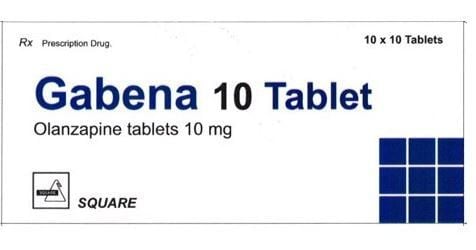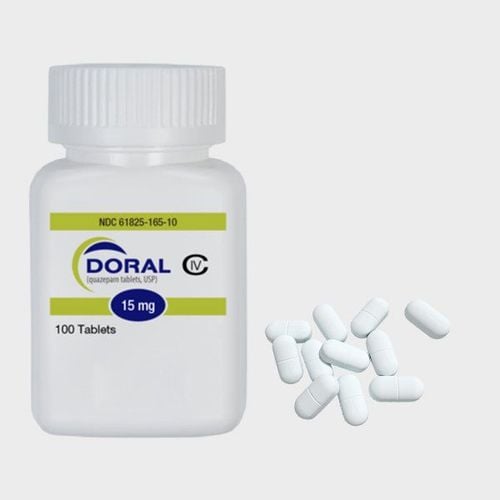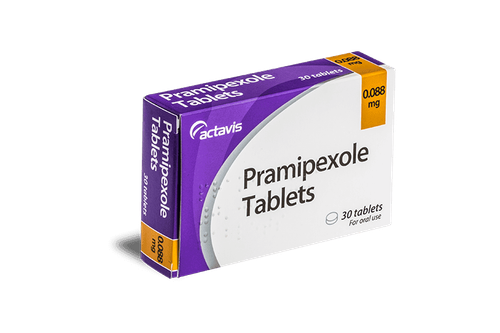This is an automatically translated article.
Rivastigmine Tartrate is made in capsule form with a weight of 30mg per tablet. It is used to treat dementia, which is caused by Alzheimer's disease and Parkinson's disease.1. What does Rivastigmine Tartrate do?
Rivastigmine is effective in treating confusion (dementia) caused by Alzheimer's disease and Parkinson's disease. However, rivastigmine does not work to cure these two diseases, but it can improve memory, cognition, and the ability to perform daily functions. Rivastigmine's mechanism of action is to restore the balance of natural substances (neurotransmitters) present in the brain.2. How to use rivastigmine tartrate You need to make sure you know the drug's information before using it. If you have any questions, contact your doctor for a more detailed answer.
Oral tablets to be taken with or without food. The maximum recommended adult dose is 6 milligrams twice a day. Dosage is calculated based on the patient's medical condition and response to treatment. Some new cases of taking the drug may experience side effects such as vomiting, diarrhea. To solve this problem, your doctor may direct you to use the drug in low to high doses for about 2 to 4 weeks.
Please use the medicine on a regular basis as prescribed by the doctor to get the best effect for the treatment process. The best way to help you not to miss any dose is to set reminders on your phone at the times of taking the medicine. Absolutely do not stop taking the medicine without the consent of the treating doctor.
If you do not take rivastigmine for 3 or more days in a row, it is important to talk to your doctor to get it started again.

Rivastigmine Tartrate có tác dụng trong việc điều trị chứng lú lẫn (bệnh mất trí) gây ra bởi bệnh Alzheimer và bệnh Parkinson
3. Side effects when taking Rivastigmine Tartrate
In the process of using Rivastigmine Tartrate, you may experience some side effects that the drug causes such as:Nausea, vomiting Anorexia or weight loss Diarrhea Weakness, dizziness Drowsiness and tremor may occur when taking Rivastigmine Tartrate. your body adapts to the medicine Serious side effects: slow or irregular heartbeat, fainting, black stools, vomit that looks like coffee grounds, severe stomach or stomach pain, seizures, trouble urinating. Severe allergic reaction: rash, itching or redness (especially of the face, tongue or throat), dizziness with difficulty breathing. Once your doctor directs you to use this medicine, it means that they have judged that the benefits of the drug outweigh the side effects it causes. There are many cases of using the drug without any serious side effects.
4. Precautions
To prevent the side effects that the drug causes while using Rivastigmine Tartrate, you need to keep a few things in mind:Tell your doctor about the types of allergic reactions you may experience (including hives). when using rivastigmine patches, drug components, pollen, animal hair, food, etc.). The drug contains some inactive substances, which can affect the user's health. Tell your doctor or pharmacist your and your family's medical history, especially of: breathing or lung problems (such as asthma, COPD - chronic obstructive pulmonary disease), stomach problems or intestines (such as ulcers, bleeding), heart disease (such as sick sinus syndrome, other conduction disorders), fainting, seizures, problems with urination (such as due to prostate hypertrophic paralysis). Rivastigmine Tartrate may make you feel dizzy or drowsy. This symptom will appear more severe in subjects with alcohol and marijuana use. Never drive or do any work that requires concentration immediately after taking the drug. During the use of Rivastigmine Tartrate, patients should not drink alcoholic beverages. Before any surgery, give your doctor a list of all the medications you are taking (including prescription, over-the-counter, and functional products). Women who are pregnant are advised by doctors to use the drug only when absolutely necessary. You should contact your doctor to discuss the risks and benefits and medications in detail.

Trong quá trình sử dụng thuốc Rivastigmine Tartrate bạn có thể gặp một số tác dụng phụ
5. Drug interactions
Aspirin Non-steroidal anti-inflammatory drugs (NSAIDs, such as ibuprofen, naproxen) Metoclopramide Double-check all prescription and nonprescription drug labels because many medications contain pain relievers or fever reducers (NSAIDs such as aspirin, ibuprofen). or naproxen) which, if taken with rivastigmine, may increase the risk of stomach or intestinal bleeding. Low-dose aspirin should be continued, as prescribed by your doctor for specific medical reasons such as heart attack or stroke prevention (usually at doses of 81-325 milligrams per day).6. Overdose phenomenon
An overdose is when a patient takes more than prescribed by a doctor. Symptoms of overdose include:Severe and prolonged nausea or vomiting Heavy sweating Very slow heartbeat Slow or shallow breathing Convulsions
7. Storage and preservation
The most suitable temperature to store the antidote is room temperature, avoiding direct sunlight. Do not store medicine in bathrooms, toilets, or places with high humidity as these environments can cause the medicine to become moldy. As for the pills that can no longer be used, you need to dispose of them properly to ensure that they are not harmful to the environment.Please dial HOTLINE for more information or register for an appointment HERE. Download MyVinmec app to make appointments faster and to manage your bookings easily.
Reference source: webmd.com












